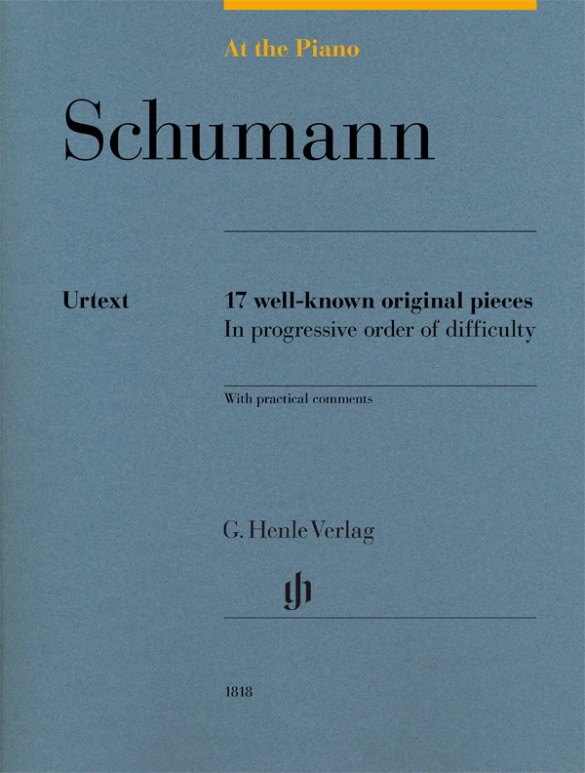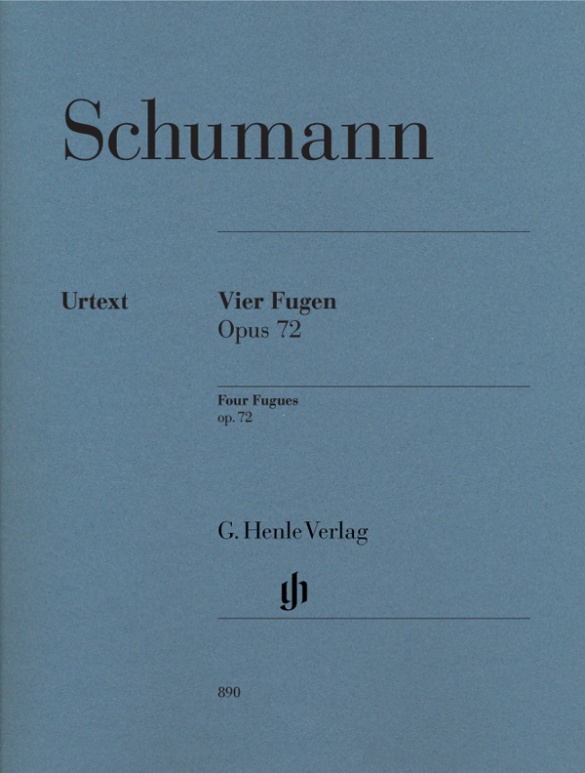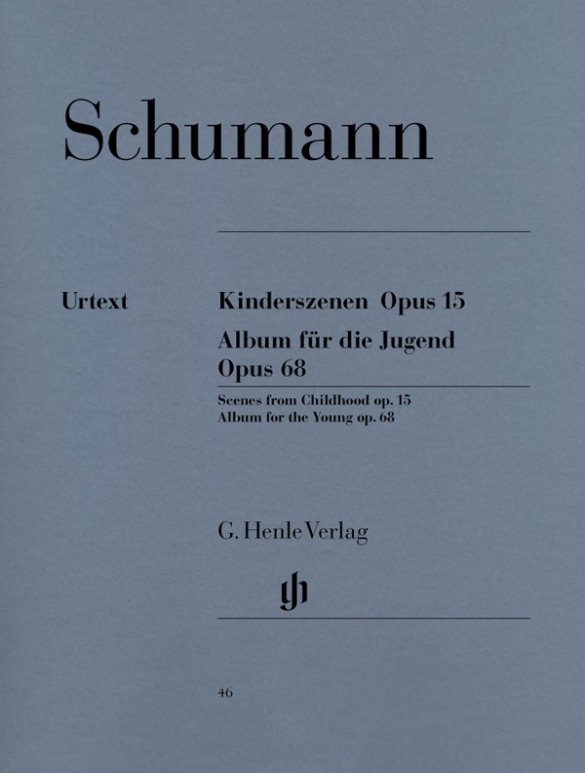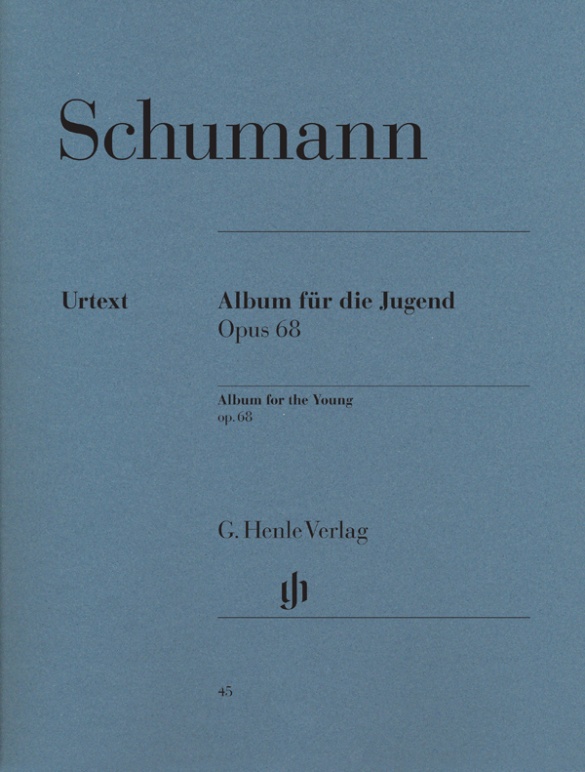

Robert Schumann
Album pour la jeunesse op. 68
Conçues tout d’abord comme simple album d’anniversaire pour sa fille Marie, les «Petites pièces pour le piano» op. 68 de Schumann entament d’emblée une impressionnante marche triomphale dans le monde entier. Quel élève de piano n’a jamais joué ces pièces? Ce qui est moins connu, c’est que Schumann avait aussi conçu sous ce rapport un «cours d’histoire de la musique» relatif au piano. Nous joignons celui-ci ainsi que tous les autres morceaux initialement prévus pour l’«Album» à l’annexe de la présente édition, soigneusement revue et corrigée. Complétée par la reproduction de l’illustration réalisée par Ludwig Richter pour le titre de la première édition et la reproduction des «Musikalische Haus- und Lebens-Regeln» (Conseils aux Jeunes Musiciens), en trois langues, notre édition Urtext transmet un tableau évocateur de la culture musicale bourgeoise de l’époque de Schumann.
CONTENU/DÉTAILS
CONCERNANT LE COMPOSITEUR
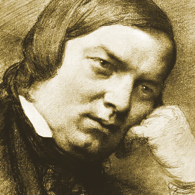
Robert Schumann
Son œuvre est marquée par le concept de la musique poétique qu’il a lui-même forgé et qui tend à une fusion de la littérature et de la musique. Ses pièces lyriques pour piano composées jusqu’en 1839 en sont tout particulièrement exemplaires. Il s’est ensuite consacré à d’autres genres (lied, symphonie et musique de chambre entre autres).
| 1810 | Né à Zwickau le 8 juin, fils d’un libraire. |
| à partir de 1828 | Études de droit à Leipzig, cours de piano auprès de Friedrich Wieck. Se décide pour une carrière de musicien. |
| 1830–39 | Compose exclusivement des œuvres pour piano, surtout des cycles, entre autres: «Papillons» op. 2 (1829-32), «Carnaval» op. 9 (1834/35), «Davidsbündlertänze» op. 6 (1837), «Scènes d’enfants» op. 15 (1837/38), «Kreisleriania» op. 16 (1838), «Novelettes» op. 21 (1838). |
| 1832 | Une paralysie partielle de la main droite rend impossible une carrière de pianiste. 1833 Fondation de la confrérie imaginaire du «Davidsbund». |
| 1835–44 | Dirige la Neue Zeitschrift für Musik (Nouveau Journal pour la Musique). |
| 1840 | Mariage avec Clara Wieck; 138 lieder parmi lesquels le Liederkreis op. 39 sur des poèmes d’Eichendorff, le cycle de lieder «Dichterliebe» op. 48. |
| 1841 | 1re Symphonie en Si bémol majeur («Symphonie du Printemps») op. 38 et 4e Symphonie en Ré mineur op. 120. |
| 1842 | 3e Quatuor à cordes op. 41; autres œuvres de musique de chambre. |
| 1843 | Professeur de composition au conservatoire de Leipzig. Oratorio «Le Paradis et la Péri» op. 50. |
| 1845 | Il s’installe à Dresde. Voyage en Russie. |
| 1845 | Concerto pour piano en La Mineur op. 54, 2e Symphonie en Ut majeur op. 61. |
| 1850 | Directeur général de la musique à Düsseldorf. Création à Leipzig de l’opéra «Genoveva» op. 81. Symphonie en Mi bémol majeur («Rhénane») op. 97; concerto pour violoncelle en La mineur op. 129. |
| 1854 | Naissance d’une amitié avec Brahms. Achèvement des Scènes de Faust. Concerto pour violon en Ré mineur pour Joseph Joachim. |
| 1854 | Tentative de suicide et hospitalisation à la clinique psychiatrique d’Endenich. |
| 1856 | Meurt le 29 juillet à Endenich près de Bonn. |
About the Authors

Ernst Herttrich (Editeur)
Dr. Ernst Herttrich, born in 1942 in Würzburg, read musicology, history, German and theology at the universities in Würzburg and Cologne. In 1970 he earned his doctorate in Würzburg with a study of the expression of melancholy in the music of Mozart.
From 1970 to 1990 he was an editor at G. Henle Publishers in Munich, after which he was Head of the Beethoven Complete Edition for over 15 years. In 1999 he took over as Head of the Beethoven-Haus Publishers, and from 2001 was made Head of the Beethoven-Archiv, the research centre at the Beethoven-Haus.
He has been a visiting professor at Meiji Gakuin University in Tokyo and has undertaken several lecture tours both there and to Kyoto. His research interests include source studies, editorial techniques and music history. Herttrich’s publications include “Beethoven. Liederkreis an die ferne Geliebte” (Bonn 1999) and “Ludwig van Beethoven. Biographie in Bildern” (Bonn, 2000). Herttrich has edited over 100 Urtext editions for G. Henle Publishers.
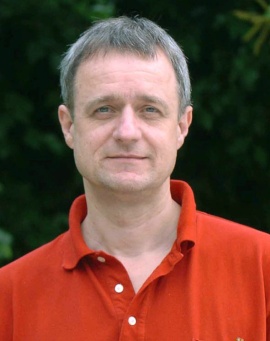
Andreas Groethuysen (Doigtés)
Prof. Andreas Groethuysen, born in 1956 in Munich, studied music with Ludwig Hoffmann in Munich and, on a scholarship from the “Studienstiftung des Deutschen Volkes”, with Peter Feuchtwanger in London.
After several years as a soloist, Groethuysen formed a piano duo with Yaara Tal, which has now become the focus of his artistic work. The duo regularly performs in many European countries, in Israel, China, North and South America. In exclusive cooperation with SONY CLASSICAL the internationally acclaimed piano duo has released a great many CDs – 28 to date – almost all of which have been awarded prizes.
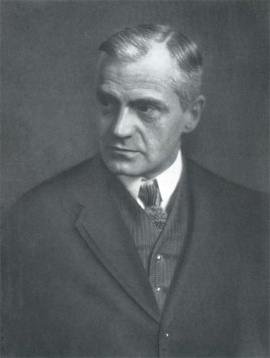
Walther Lampe (Doigtés)
Prof. Walther Lampe, born in 1872 in Leipzig, died in 1964 in Munich, studied the piano with Clara Schumann at the Hoch’schen Konservatorium in Frankfurt, as well as music theory and composition. He concluded his studies in Berlin, where he was a student of Herzogenberg and Humperdinck.
He first appeared as a concert pianist, but in 1920 was appointed as a professor and head of a class at the Münchener Akademie der Tonkunst. After Lampe was given emeritus status in 1937, he took on a piano class at the Mozarteum in Salzburg. Günter Henle, who grew up in Munich, was a private pupil of Lampe’s, from the age of 15 (in 1914). In his autobiography he wrote of his piano teacher in the following glowing terms:
“The years in which Walther Lampe, the renowned pianist and Head of piano master-classes in Munich and Salzburg, instructed me in the higher mysteries of piano playing, are amongst the most treasured memories of my youth. […] Lampe, himself an excellent concert pianist, had the reputation of being one of the leading teachers. Due to his practical experience of many decades he was able to pass on his great knowledge and skill both in words and through his own playing in a highly inspiring and supportive manner. His interpretations of Mozart were positively divine. […] I remain indebted to him for his great artistic suggestions and his friendship, which he shared with me over decades.”
During the first few years of World War II, Günter Henle looked up his old teacher and friend in Munich several times to play music with him. It was self-evident for Günter Henle to inform Walther Lampe of his plans to set up his music publishing house shortly after the end of the war, asking him for his help and advice. Lampe was very actively involved in the first editions: almost all of the Urtext editions published in the early years were supervised intensively by Lampe, a fact which is attested by the comprehensive correspondence in the archives of G. Henle Publishers. And Lampe also contributed his own fingerings to almost all of these editions. It is a very impressive list of titles, which even today still form part of G. Henle Publishers’ core repertoire.
Informations sur la sécurité du produit

G. Henle Verlag
Vous trouverez ici des informations sur le fabricant du produit.G. Henle Verlag e.K.
Forstenrieder Allee 122
81476 München
Allemagne
info@henle.de
www.henle.com
De nieuwe Urtext van Henle is een pronkjuweel en heeft werkelijk alles wat je je maar kunt wensen.
Pianowereld, 2008Die Anschaffung lohnt sich selbst dann, wenn eine ältere Ausgabe längst im Notenschrank steht. Weil der Herausgeber Ernst Herttrich ganze Arbeit geleistet hat: Die Stücke wurden völlig neu durchgesehen, bei etlichen gibt es klein gedruckte Alternativ-Fassungen, die eine völlig neue Sicht der Dinge erlauben.
Westfälische Nachrichten, 2008recommandations
autogenerated_cross_selling
Autres éditions de ce titre
Autres éditions de ce titre


